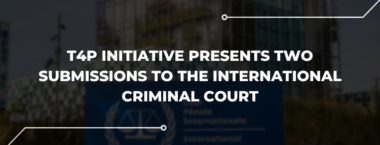
Torments, Torture Chambers, Executions: T4P Initiative Presents Two Submissions to the International Criminal Court
Information about extrajudicial executions of Ukrainians by the Russian military and Russian torture chambers in...
28 September 2023
13.12.2017
The armed conflict in eastern Ukraine continues. Is it possible to respect human rights in these conditions? Human rights defenders of the Ukrainian Helsinki Human Rights Union report annually, focusing the attention on main trends of the period.
Oleksandr Pavlichenko, UHHRU Executive Director, focused on an overview of the dynamics of human rights protection in the context of Russia’s armed aggression. “The Union is not only a monitor of the situation, but also an active player, providing documentation of violations, helping to solve problems at the national and international levels: in national courts, in the European Court of Human Rights and the International Criminal Court,” he said.
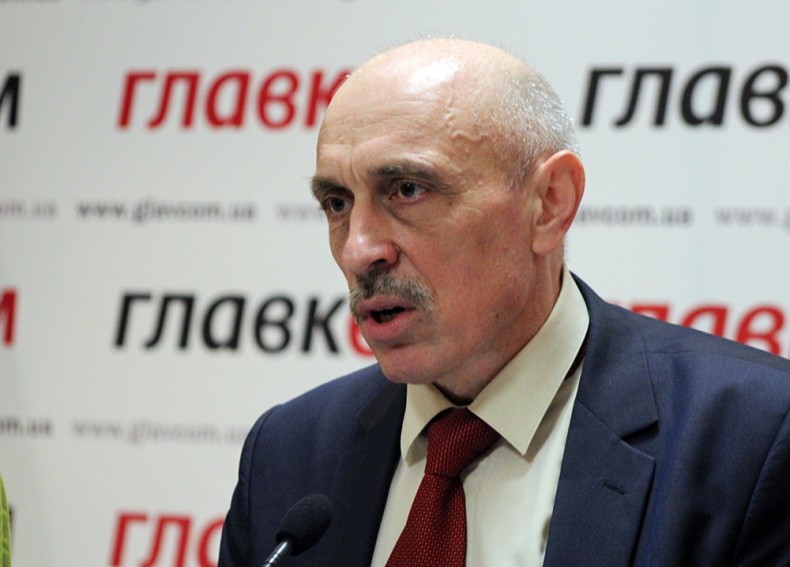
Alina Pavliuk, a lawyer of the Strategic Litigations Center of UHHRU, reminded that in 2015 and 2016 the Helsinki Union published two reports “Total impunity in the ATO zone”. According to her, most of the problems presented in these reports are of current concern, and new ones added to them. In particular, a single register of missing persons from the ATO zone has not yet been established.
According to Alina Pavliuk, the work of the Office for the Investigation of Offenses against Peace and Human Security of the Main Military Prosecutor’s Office of the PGU should be positively mentioned. It pays much attention to working with victims of illegal detentions and torture. “But this department have clearly not enough resources, there are only thirty investigators working there, who, besides this, also have other responsibilities. This leads to the fact that people released from captivity in 2014, have not yet been interrogated. In addition, there is concern about the inadequate qualifications of some investigators who are poorly aware of the work of the International Criminal Court. This in the future may cause problems with the consideration of Ukrainian cases there,” said Alina Pavliuk.
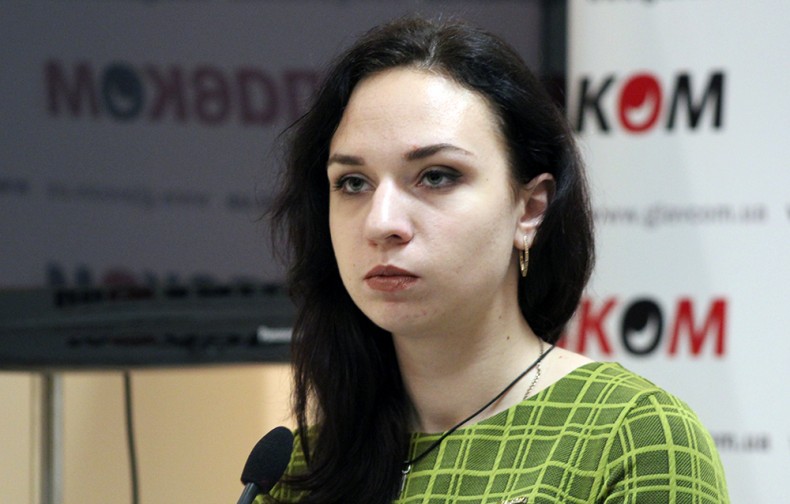
Alina Pavliuk recommended to state bodies to continue working on documenting crimes in cooperation with NGOs.
Oleh Martynenko, Head of the Analytical Department of UHHRU, noted that, in addition to the humanitarian catastrophe, there is also an ecological disaster in the ATO zone. “There is a constant pollution of the soil with heavy metals as a result of bombing and artillery fire, flooding of mines, pollution of groundwater, destruction of forest-steppe sanctuaries as a result of uncontrolled fires. These are losses of Ukraine in the equivalent of thirty-three train carriages of top-quality gold, that is a few carriages more than the gold reserves of the Russian Federation,” said Oleh Martynenko.
In addition, according to Oleh Martynenko, Ukraine still lacks an information strategy for the period of armed conflict, which would allow preserving freedom of speech and at the same time confronting the challenges of the information warfare. “Civil society cannot allow restricting access to web sites and social networks, because it is illegal, as it is done without the decision of a court. Restricting access to Vkontakte and Odnoklassniki is disproportionate in view of the damage they inflict on Ukraine. It is enough to restrict the activity of individual groups and individual administrators of these social networks. You can even open criminal cases against them, but do not restrict access to the whole social network, ” said Oleh Martynenko.
The human rights defender emphasized that legislative efforts of the majority of people’s deputies are aimed at protecting the territory, not people. Oleh Martynenko believes that due to this there are many misunderstandings and problems that could be avoided. In particular, corruption in the Ministry of Defense, which leads to a decrease in the state’s defense capability.
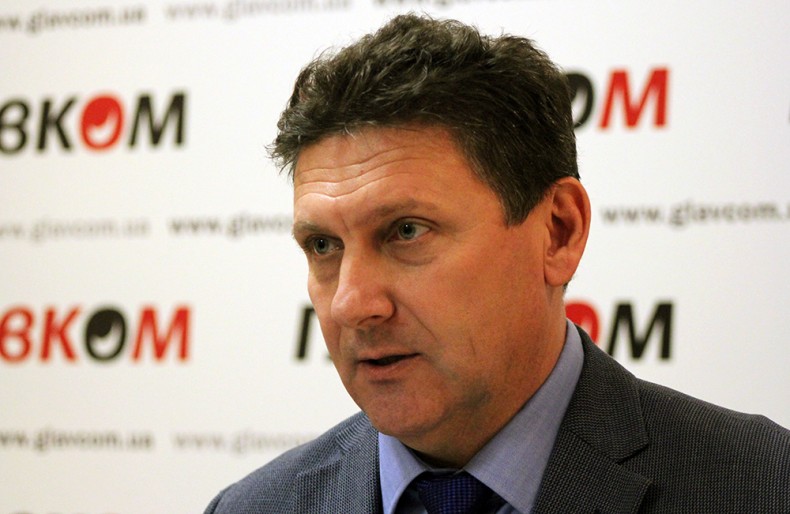
“Our deputies are too enthusiastic about punitive bills, for example, they plan to consider bills on collaboration and punishment for not recognizing the armed aggression of the Russian Federation against Ukraine. Similar bills scare the population living in the territories of occupied Crimea and uncontrolled Donbas, because every citizen can fit it on her/himself. A person may consider her-/himself potentially guilty and definitely will not want to return these territories to Ukraine. So, we can lose this population. This is the struggle not for the territory, but for the people,” said Oleh Martynenko.
Oleh Martynenko reminded that the Ukrainian government should take care of the broadcast of the Ukrainian media signal in uncontrolled territories, as well as the payment of social assistance and pensions to their inhabitants.
In order to find a way out of the difficult situation in the occupied and non-controlled territories, the Ombudsman’s Office is currently recruiting a group of lawyers and human rights defenders who are discussing how the so-called transitional justice will work in the future. “We are looking for a consensus between national security, human rights and the opportunity to compensate the victims of armed conflict,” said Oleh Martynenko.
Prepared by Oleh Shinkarenko
If you find an error on our site, please select the incorrect text and press ctrl-enter.

Information about extrajudicial executions of Ukrainians by the Russian military and Russian torture chambers in...
28 September 2023
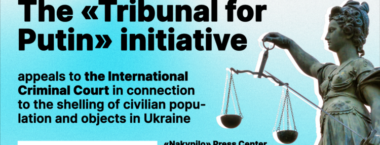
Since the onset of the full-scale invasion, the «Tribunal for Putin» initiative has recorded about...
18 August 2023
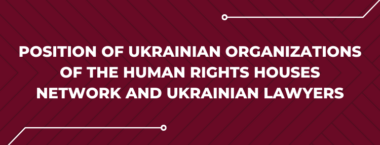
Position of Ukrainian organizations of the Human Rights Houses Network and Ukrainian lawyers on the...
17 July 2023

On June 6, 2023, the Southern Area Military Court of Rostov-na-Donu sentenced Mr.Bohdan Ziza, a...
08 June 2023